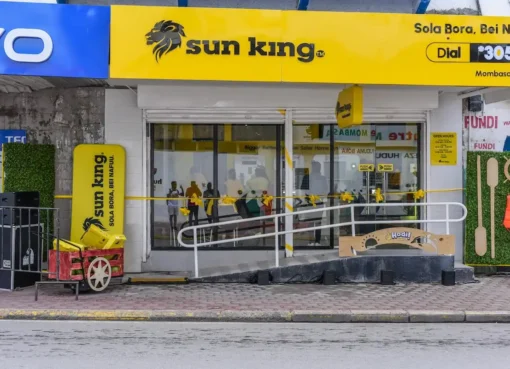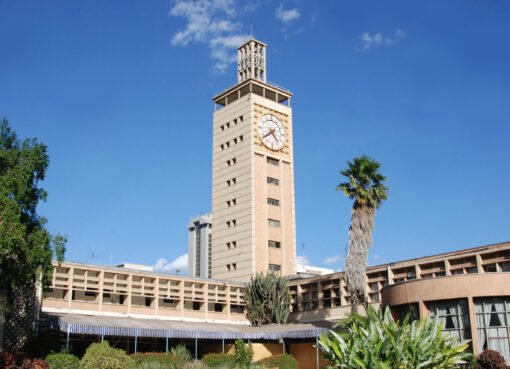Releaf Earth, a Nigerian climate-agritech startup, has launched the country’s first operational industrial biochar production facility in Iwuru, Cross River State, capable of removing carbon from the environment. Using palm kernel shells processed by its proprietary machine, Kraken, the plant converts the agricultural waste into biochar, a charcoal-like substance made from agricultural waste that helps soil hold nutrients to enhance crop growth. It also sequesters carbon, giving Nigeria a market opportunity in the global carbon removal economy.
Carbon dioxide (CO₂) removal is crucial in combating global warming because it addresses the excess CO₂ already present in the atmosphere, which continues to trap heat and drive climate change. However, conservation and sustainable use of biomass have become a primary global strategy for reducing atmospheric carbon.
Releaf’s biochar production emerged from its origins in food processing, where palm kernel shells are mostly treated as waste despite their economic value. The shells, due to their high carbon composition, are now being transformed into a valuable biochar, creating wins for farmers, the climate, and the economy. According to the company, its Iwuru facility will remove 40 kilotonnes of CO₂ from the environment by 2030, with plans for an additional 60 kilotonnes of CO₂ removal at other facilities.
The company said the Kraken machine de-shells the palm nuts. While the kernels are used to produce ingredients such as vegetable oil, the leftover shells are fed into a pyrolyser. This thermal conversion system heats the biomass in the absence of oxygen, converting it into biochar. This process locks carbon in a stable form for centuries when the biochar is buried underground, preventing it from re-entering the atmosphere as CO₂.
The process returns the removed atmospheric carbon to the land, supporting smallholder farmers by enhancing soil quality for improved crop yields and income, and creating new income streams through the commercialisation of carbon credits.
“This innovative approach combines permanent carbon sequestration with regenerative agriculture, delivering tangible benefits to both the planet and the smallholder farmers at the heart of Africa’s food systems,” the company said. “In addition to its climate and agricultural benefits, the biochar production process generates its own renewable energy. This means Releaf Earth’s biochar units can operate with minimal reliance on external power sources, making them ideal for deployment in off-grid rural areas.”
To tap into the market for both agricultural inputs and climate finance, Ikenna Nzewi, CEO of Releaf Earth, expressed that the company has partnered with Thrive Agric, an agribusiness that works with over 500,000 farmers across Nigeria, and has already begun distributing and applying biochar among smallholder farmers, while also storing and tracking it daily as part of a growing initiative.
“Biochar serves as both a physical product that enhances soil productivity and as a carbon removal mechanism that generates high-value carbon credits, which are digital assets,” he said. “ So, we’ve already started sequestering carbon for thousands of years, which is really exciting.”
To bring transparency to the emerging value chain, Nzewi told TechCabal that the company has built geospatial software tools to visualise its entire supply chain, from sourcing palm kernel shells to storing biochar. These tools provide real-time traceability for carbon credit buyers, such as Microsoft and other major tech firms, who can now see where the carbon is stored, complete with images and GPS data, making their carbon removal operations fully auditable.
While transparency is necessary to attract global buyers of carbon credits, he said the company is using Riverse, a carbon credit verification platform, to provide real-time tracking and verification of its removed carbon. “They essentially review our factory, the raw material that we are using, and basically do an analysis for every ton of palm kernel shell that we put in our machine to make biochar, how many tons of carbon does that remove?”
He revealed that while the company is a biochar industry pioneer in the country, it is targeting two distinct revenue streams, the sale of biochar, which is potentially priced between $400 to $600 per ton, and carbon removal credits, which fetch $150 to $200 per ton of CO₂ equivalent removed.
According to industry data by Sylvera, biochar projects accounted for over 90% of all issued carbon credits from removal projects. However, Africa remains underrepresented in the carbon credit market, despite its abundance of biomass that could help it remove large amounts of carbon through biochar.
Nwezi stated that while Africa produces more than a billion tons of biomass annually, biochar gives the continent the unique opportunity to lead the global climate goals, which requires that “carbon removal must scale 14,000-fold to reach 10 billion tons annually in the next 25 years. [And] the need to feed its growing population means this output is bound to increase.”
Mark your calendars! Moonshot by TechCabal is back in Lagos on October 15–16! Join Africa’s top founders, creatives & tech leaders for 2 days of keynotes, mixers & future-forward ideas. Early bird tickets now 20% off—don’t snooze! moonshot.techcabal.com.



































Comment here